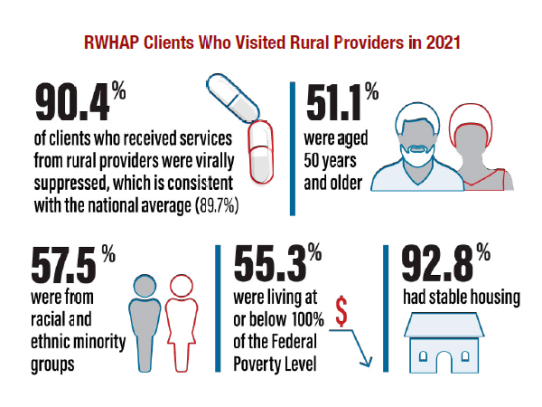

Rural areas often face limited health care services and require travel across long distances to access care, with limited transportation options. Options for HIV care are often limited, with added barriers to care including stigma, which can serve as a deterrent from individuals seeking out testing and treatment.
Best Practices
- Center for Innovation and EngagementCollection of implementation guides on evidence-informed best practices in HIV care delivery.
- AIDS Action Foundation
Workbooks describing ways to help connect people living with HIV/AIDS to medical care. Estos cuadernos describen la manera de asistir a conectar personas que viven con VIH/SIDA con el sistema médico.
- IHIP
Implementation guide for HIV providers on addressing the unique needs of women of color living with HIV.
- Center for Innovation and EngagementClinic-based mobile health intervention that promotes linkage to and engagement in HIV care in rural areas for people with HIV who are new to care or at risk of falling out of care.
Training Modules
- IHIP
Tools to help health care providers adapt SPNS models within their existing operations in order to better engage hard-to-reach people with HIV into care.
- IHIP
Manual to help health care providers adapt SPNS models addressing how to engage hard-to-reach people with HIV (PWH) into care within their current operations.
Webinars
- HRSA HIV/AIDS Bureau (HAB)
Webinars and other special events by HRSA's HIV/AIDS Bureau.